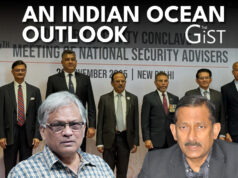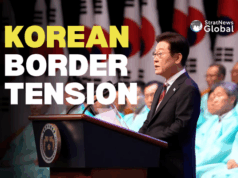Prime Minister Narendra Modi’s recent visit to Japan, his first in seven years, has rebooted a relationship that, despite warm rhetoric, has too often lagged in concrete economic delivery. In a wide-ranging conversation with StratNews Global, Dr Tomohiko Taniguchi, former special adviser to the late Shinzo Abe, sketched both the promise and the persistent gaps.
Tokyo and New Delhi have historically placed security first, building early consensus on an ‘Indo-Pacific’ vision Abe outlined in his 2007 ‘Confluence of Two Seas’ speech. Yet Japanese brands, barring outliers such as Maruti Suzuki, still underperform in India’s vast consumer market. Modi’s trip therefore “was instrumental to boost commercial ties,” Taniguchi said, noting that strategic trust now needs to be matched by board-room commitment. Too many top Japanese executives still choose New York or London postings over Delhi, he observed; that mindset must change if Japan hopes to close the gap with South Korean and Chinese rivals.
The summit produced a long to-do list: a U.S. $68 billion private-investment target over 10 years, semiconductor and AI collaboration, lunar science links and a bilateral mobility scheme that could send up to 500,000 skilled Indians to help ease Japan’s labour crunch.
Taniguchi cautioned, however, that success hinges on “intensive people-to-people exchanges”, especially student flows. Japan’s universities are currently dominated by Chinese PhD candidates; attracting more Indian talent in physics and mathematics would diversify campuses and seed long-term technological cooperation.
Political uncertainty in Tokyo clouds the outlook. With Prime Minister Shigeru Ishiba weakened by three straight election setbacks and talk of an early party leadership contest, Japan today “punches below its weight,” Taniguchi admitted. That lowers Japanese diplomatic bandwidth just as the Quadrilateral Security Dialogue (QUAD) faces questions over a possible no-show by US President Donald Trump at a planned Delhi summit. Rather than waiting on Washington, Taniguchi urged India and Japan to “incentivise” American engagement and keep the four-nation format on track.
“At the core identity of the Indians is their commitment in basic, fundamental freedom values. So for that matter, we, India and Japan should not lose sight of that big picture. Short term, there will be disruptions in the bilateral relationship between India and the United States as has always been the case between Japan and the United States,” explained Dr Taniguchi. “But the future will not lie in despotic, authoritarian regimes, but in open, democratic, accountable regimes.”
For New Delhi, the message is two-fold: Japan remains a like-minded democracy that “buys into India’s future,” yet the clock is ticking on translating plans into factories, labs and joint patents. After years of caution, both New Delhi and Tokyo now need to push from co-operative intent to competitive scale.




